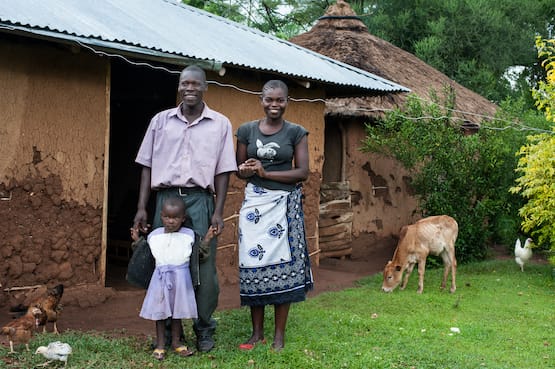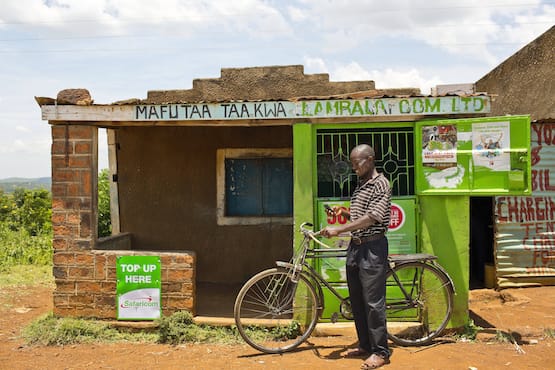The problem: traditional methods of international giving are complex — and often inefficient
Often, donors give money to a charity, which then passes along the funds to partners at the local level. This makes it difficult for donors to determine how their money will be used and whether it will reach its intended recipients. Additionally, charities often provide interventions that may not be what the recipients actually need to improve their lives. Such an approach can treat recipients as passive beneficiaries rather than knowledgeable and empowered shapers of their own lives.
The solution: unconditional cash transfers
Most poverty relief initiatives require complicated infrastructure, and alleviate the symptoms of poverty rather than striking at the source. By contrast, unconditional cash transfers are straightforward, providing funds to some of the poorest people in the world so that they can buy the essentials they need to set themselves up for future success.
Cash transfers are relatively well-studied compared to other forms of charitable aid. Numerous studies have shown that this approach changes lives for the better. Several of the studies have found that cash transfers improve child health and schooling, while savings and investment rates are typically high. [1]

How GiveDirectly works
GiveDirectly is the first and largest nonprofit that lets donors send money directly to the world’s poorest people in Kenya, Uganda, Rwanda, Liberia, the Democratic Republic of Congo, and Malawi. [2] These direct cash transfers allow families to spend on whatever they need most: food and shelter, education costs, investing in their own businesses, purchasing medicine, etc.
GiveDirectly uses a rigorous, data-driven model to oversee the entire transfer process end-to-end — without a middleman or partner charity. They use national data and door-to-door surveys to seek out the poorest households to receive transfers. Recipients are selected using a range of criteria that vary by region, including housing materials, assets, and vulnerable recipient status. They then transfer approximately US$1,000 (amounts vary roughly by program) to the family using a mobile payment system.
Besides their standard unconditional cash transfer programs, GiveDirectly is also running innovative cash projects including:
- A historic Universal Basic Income initiative, delivering a basic income to 20,000+ people in Kenya in a 12-year study, the largest randomized control trial on UBI to date.
- A large-scale cash transfer program targeting refugees and host families in Uganda and Rwanda.
- An urban youth program to deliver cash transfers to individuals aged 18–35 living in Mathare, Kenya.
- Cash transfers for disaster victims, an increasingly recognized form of effective assistance in these dire circumstances. (The UN Secretary General has noted that, “Where markets and operational contexts permit, cash-based programming should be the preferred and default method of support.”)

The GiveDirectly team has strong experience in international development, economics, policy analysis, and program evaluation, in both the nonprofit and for-profit sectors. They are committed to transparently tracking and improving their effectiveness through randomized controlled trials of their work.
